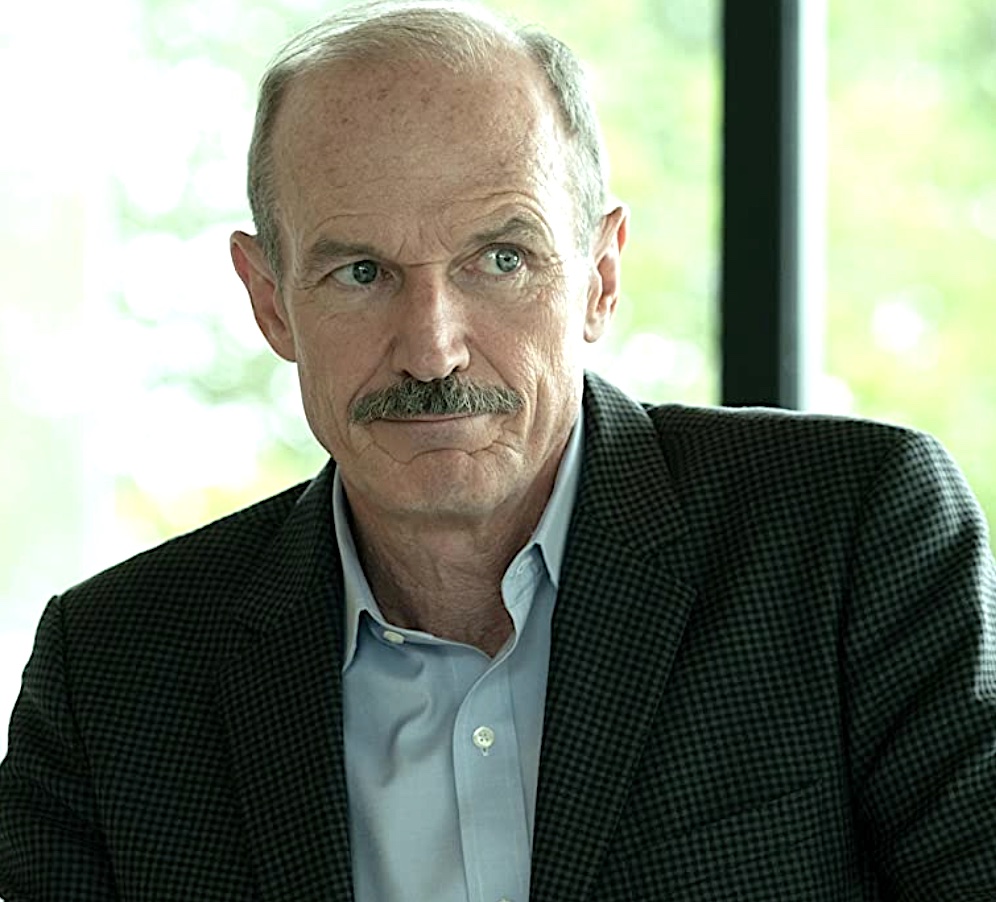Directed by Adrian Lyne, Fatal Attraction was the biggest-grossing film of 1987, and gave the world the term “bunny boiler”. Lyne isn’t aboard for Paramount’s new eight-part series, but the film’s screenwriter James Dearden is a major script contributor alongside the show’s creators Kevin J Hynes and Alexandra Cunningham.
This isn’t a re-make, more like an expanded Fatal Attraction universe which develops the original story outwards and forwards in time. At its core is the brief affair between Dan Gallagher (Joshua Jackson), a Los Angeles county prosecutor, and Alex Forrest (Lizzy Caplan), who works in the Victim Support unit. When Alex starts to make more demands on Dan than a supposedly happily married family man can afford to accommodate, Dan finds his casual extra-marital dalliance is pointing him towards the exit door of both his career and his marriage. In fact he ends up in jail for murder.
Fifteen years later, Dan has been released on parole, and is trying to pick up the shattered fragments of his life. Times and expectations have changed since the original movie appeared. The series is far more mindful of the roles and expectations of women, and the female prosecutor uses Dan's murder trial as a pretext for a speech about “entitled white men” using their power and privilege to exploit less powerful women (though she must have noticed that many of the senior roles in Dan’s legal department are occupied by non-white females). Meanwhile Alex’s obsessive, manipulative, not to mention murderous behaviour is now framed within a more sympathetic understanding of mental illness, including some too-literal signposting of the fallout from her nightmarishly dysfunctional parents. It’s an irony that her capacity to empathise with the clients she deals with in her professional career somehow doesn’t carry over into her private life. The problem drama-wise is that making space for too much sympathy and understanding risks torpedoing the relentlessly mounting tension that kept Eighties movie-goers chewing their fingernails along with the popcorn. The series seeks to counter that by adopting a deliberately measured, slow-burn approach which makes room to explore the same events from different viewpoints (for instance a sequence where Dan glimpses Alex through the closing doors of an elevator is later matched by her walking down the corridor past the elevator at the same moment).
The problem drama-wise is that making space for too much sympathy and understanding risks torpedoing the relentlessly mounting tension that kept Eighties movie-goers chewing their fingernails along with the popcorn. The series seeks to counter that by adopting a deliberately measured, slow-burn approach which makes room to explore the same events from different viewpoints (for instance a sequence where Dan glimpses Alex through the closing doors of an elevator is later matched by her walking down the corridor past the elevator at the same moment).
There’s also a much-expanded role for Dan’s daughter Ellen (Alyssa Jirrels, pictured above with Amanda Peet), an unsettlingly brilliant psychology student prone to delivering Jungian analyses of the dramatis personae, with liberal use of terms like “individuation” and the “shadow self”. There’s even a scene which suggests that Ellen’s childhood meeting with Alex was a transformative moment in her mental development, which feels like a bit of a leap too far.
As the series develops, the spotlight switches to seemingly peripheral characters who turn out to have much more significant roles in the drama than seemed likely, not least the Gallaghers’ friend Arthur Tomlinson (Brian Goodman). Grappling with his wife’s terminal cancer, he makes time to carry out a decisive intervention on the Gallaghers’ behalf, but rather than a solution, this becomes an illustration of the mountain that Dan has to climb if he’s ever going to clear his name.
 This is because the nature of the justice system is another plank in the show’s construction. The moral, or one of them, is that once the system has you in its clutches you’ll find it near-impossible to drag yourself free. Part of Dan’s problem is that he was just too big and headline-grabbing a scalp for the district attorney for the powers that be to ever admit they made a mistake. As part of his footsore pilgrim’s progress, he gets to meet up again with people who are only too delighted to tell him how much they always hated his smooth, complacent lawyer’s guts, like the abrasive detective Earl Broker (Reno Wilson) or the court attendant who relishes his opportunity not to offer downtrodden Dan a helping hand.
This is because the nature of the justice system is another plank in the show’s construction. The moral, or one of them, is that once the system has you in its clutches you’ll find it near-impossible to drag yourself free. Part of Dan’s problem is that he was just too big and headline-grabbing a scalp for the district attorney for the powers that be to ever admit they made a mistake. As part of his footsore pilgrim’s progress, he gets to meet up again with people who are only too delighted to tell him how much they always hated his smooth, complacent lawyer’s guts, like the abrasive detective Earl Broker (Reno Wilson) or the court attendant who relishes his opportunity not to offer downtrodden Dan a helping hand.
It’s a fascinating and ambitious series, sometimes tripped up by the extravagant scope of its aspirations. Excellent performances abound, particularly from Jackson, Amanda Peet as his wife Beth and Toby Huss (pictured above) as the brutally plain-speaking investigator Mike Gerard. As for boiling bunnies… my lips are sealed.















Add comment